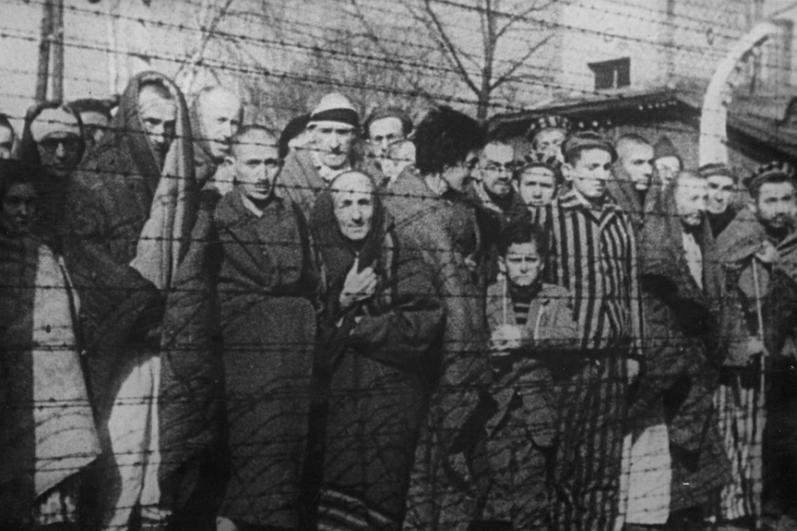Two families and the communion of saints
Despite being immersed for over 30 years in the study of modern Polish history, I must confess that I'd never heard of the heroic Ulma family until recently. I'll get to the circumstances of my being introduced to these 20th-century martyrs in a moment. But first, consider their story.
Józef Ulma was a prominent personality in Markowa, a village in southeastern Poland. Born in 1900, he had a more extensive education than many of his neighbors and was a farmer, a librarian, and an accomplished photographer at a time when that art form took imagination and great skill. His wife Wiktoria, 12 years younger, was the mother of three girls (Stanis?awa, Barbara, and Maria) and three boys (W?adys?aw, Franciszek, and Antoni). When the Ulmas' trial of conscience came in 1944, the children ranged in age from eight to two, and Wiktoria was pregnant with a seventh child.
In mid-1942, the Nazis occupying Poland began to implement the diabolical "Final Solution" to the "Jewish Question," which had been planned at the notorious Wannsee Conference on January 20 of that year. As part of the extermination of European Jewry, Polish families in the Markowa area began to be deported to the death camps. Eight Jews from two local families were sheltered by the Ulmas. Hidden at night in the Ulmas' attic, they helped during the day with the work of the Ulma farm.
A local collaborator denounced the Ulmas to the German police and on March 24, 1944, a squad of Nazis surrounded the farmhouse where the eight Jews were hidden. Each was shot in the back of the head, and then, as the local villagers were forced to watch, Józef and Wiktoria Ulma were summarily executed. The six Ulma children were then shot. When the bodies of the Ulma family were eventually exhumed from a mass grave to be buried properly in a local cemetery, it was discovered that Wiktoria had begun to give birth to the Ulmas' seventh child as she and her husband were being killed.
In 1995, Józef and Wiktoria Ulma were enrolled as "Righteous Among the Nations" by the Holocaust Memorial at Yad Vashem in Jerusalem. The cause for their beatification was introduced in 2003, and in 2015, the Ulma Museum of Poles Saving Jews was opened in Markowa. Eleven years earlier, a memorial to the Ulma family had been erected in Markowa, bearing this moving inscription:
Saving the lives of others, they laid down their own lives. Hiding eight elder brothers in faith, they were killed with them. May their sacrifice be a call for respect and love to every human being! They were the sons and daughters of this land; they will remain in our hearts.
It was thanks to my Ethics and Public Policy Center colleague Ian Lindquist and his wife, Kelly, that I learned about this extraordinary story of family, faith, and sacrifice. Ian Lindquist is a leader in the campaign for school reform in the United States, having worked for years in classical education at the secondary level as well as writing extensively on education policy. Some months ago, Ian was diagnosed with an aggressive form of leukemia and the Lindquists began praying, through the intercession of the Ulmas, for Ian's healing. Like Józef and Wiktoria Ulma, Ian and Kelly are the parents of seven. Like the Ulmas, the Lindquists are a family of deep faith. The Lindquists' identification with the Ulmas, and their dedicating their prayers for Ian's healing to the success of the Ulmas' beatification cause, is one of the most compelling examples I've ever encountered of that familiar (if often unpondered) phrase from the Creed, the "communion of saints."
As I've noted before, Christians live in a different time-zone because, thanks to the Resurrection of the Lord Jesus, Christians are the people who know how the world's story is going to turn out: God's purposes will be vindicated in what the Book of Revelation calls the Wedding Feast of the Lamb. Christians also live in a different time-zone because of the communion of saints: our spiritual solidarity, in this world, with those Christians who now live in the presence of the Thrice-Holy God and those Christians who are being purified that they, too, may do so.
In the communion of saints, which is a communion of faith and charity, the Ulmas and the Lindquists know and support each other. May the intercession of the Ulmas continue to open channels of grace for the Lindquists, who are helping make the story of these modern martyrs better known as they live their own dramatic trial.
- George Weigel is Distinguished Senior Fellow of the Ethics and Public Policy Center in Washington, D.C.



















